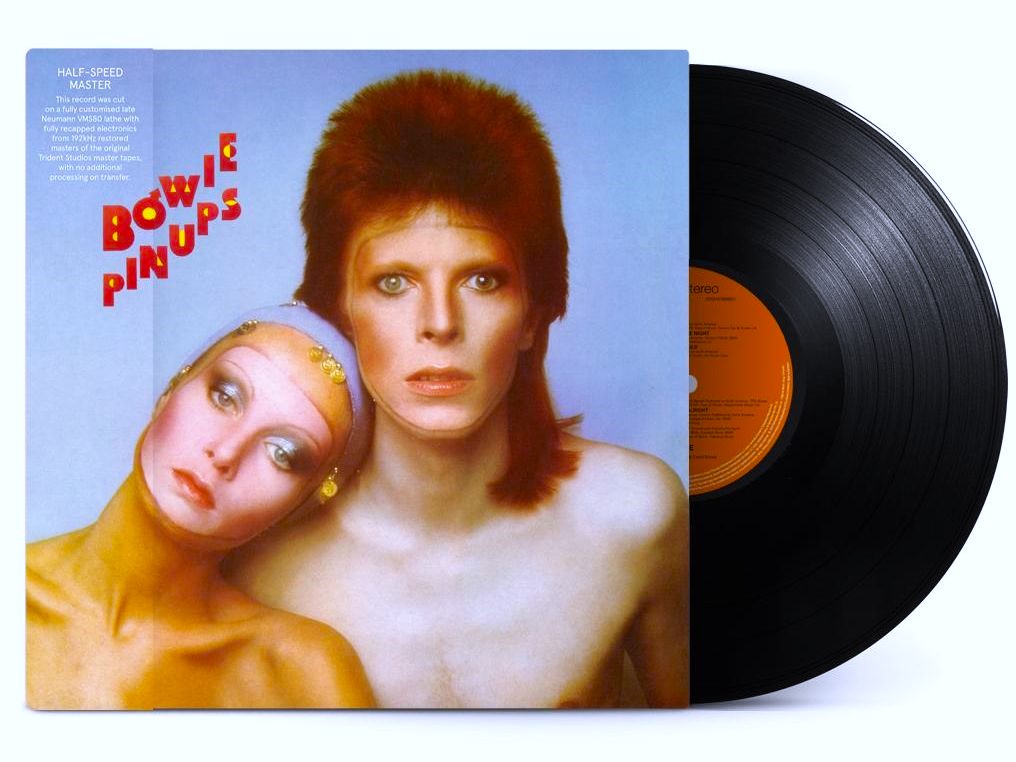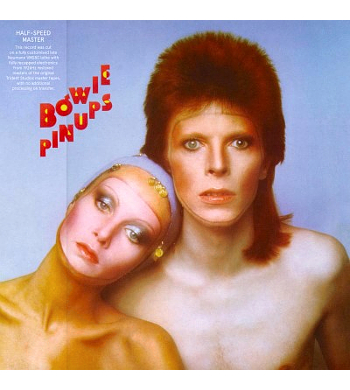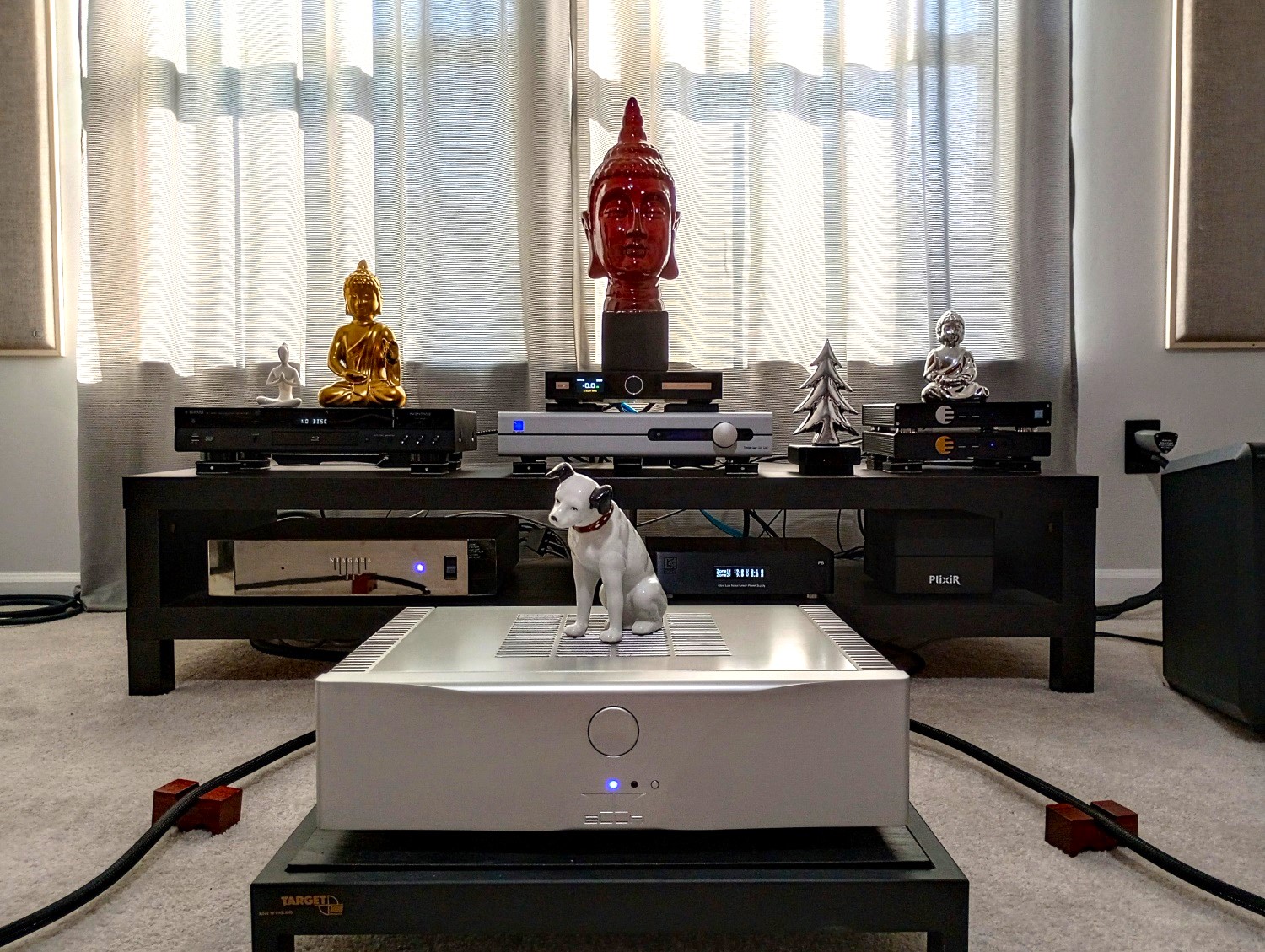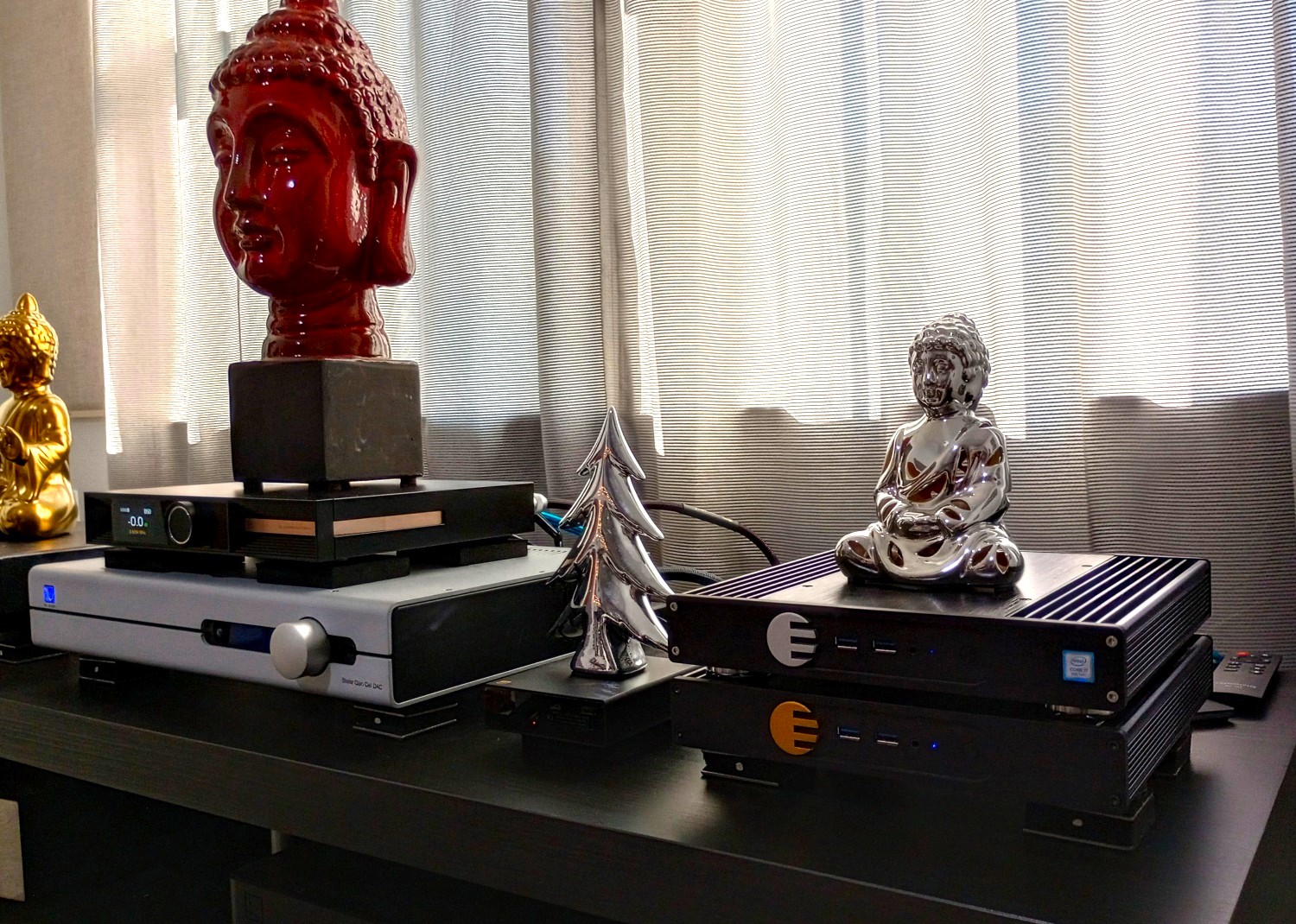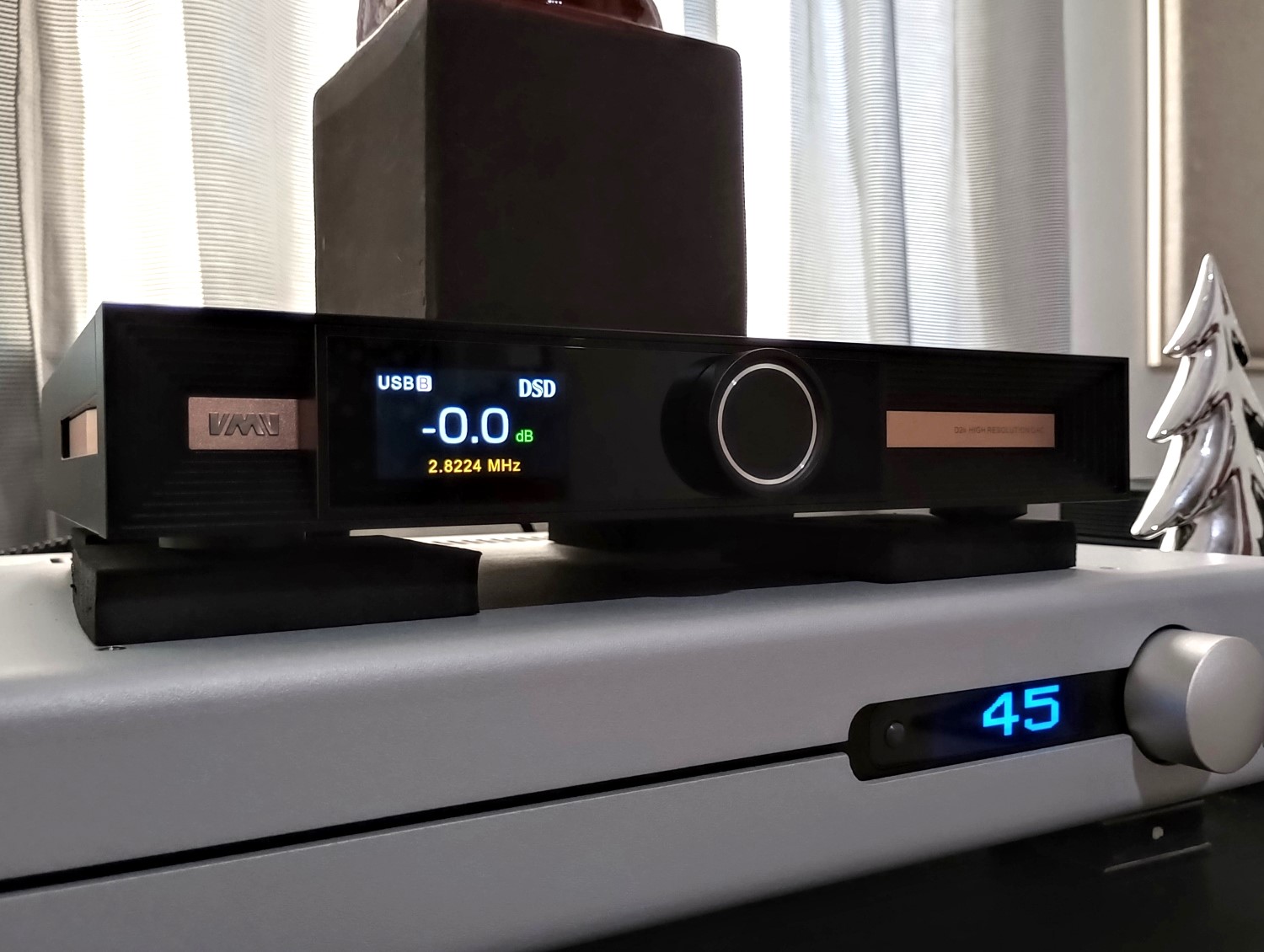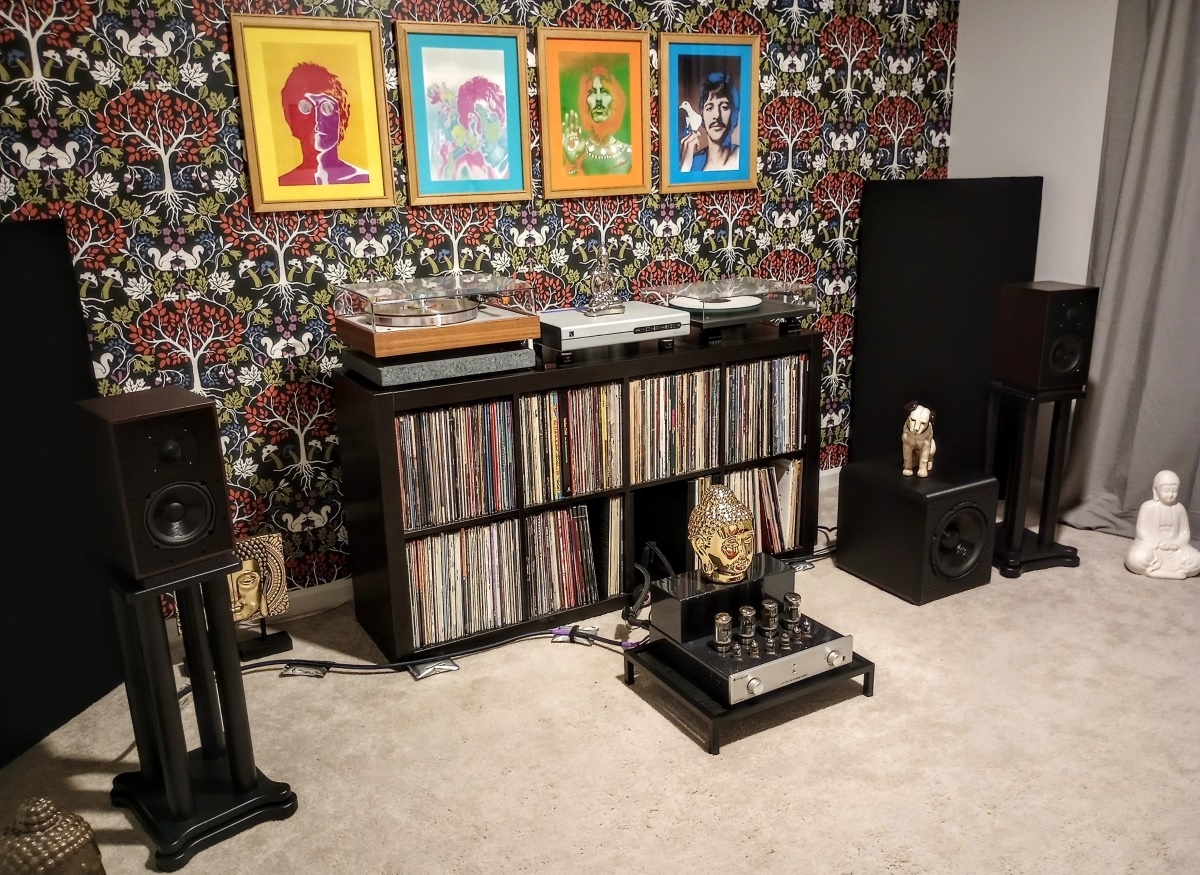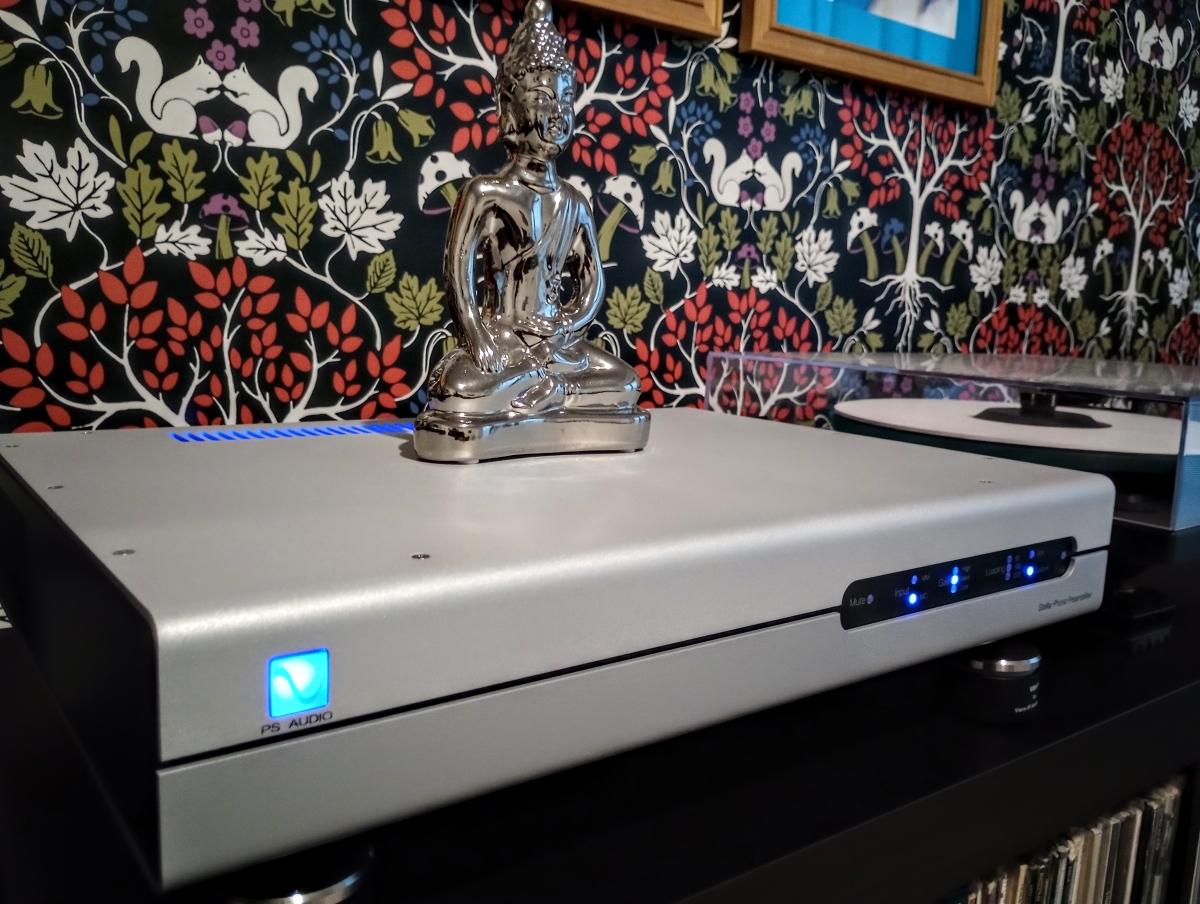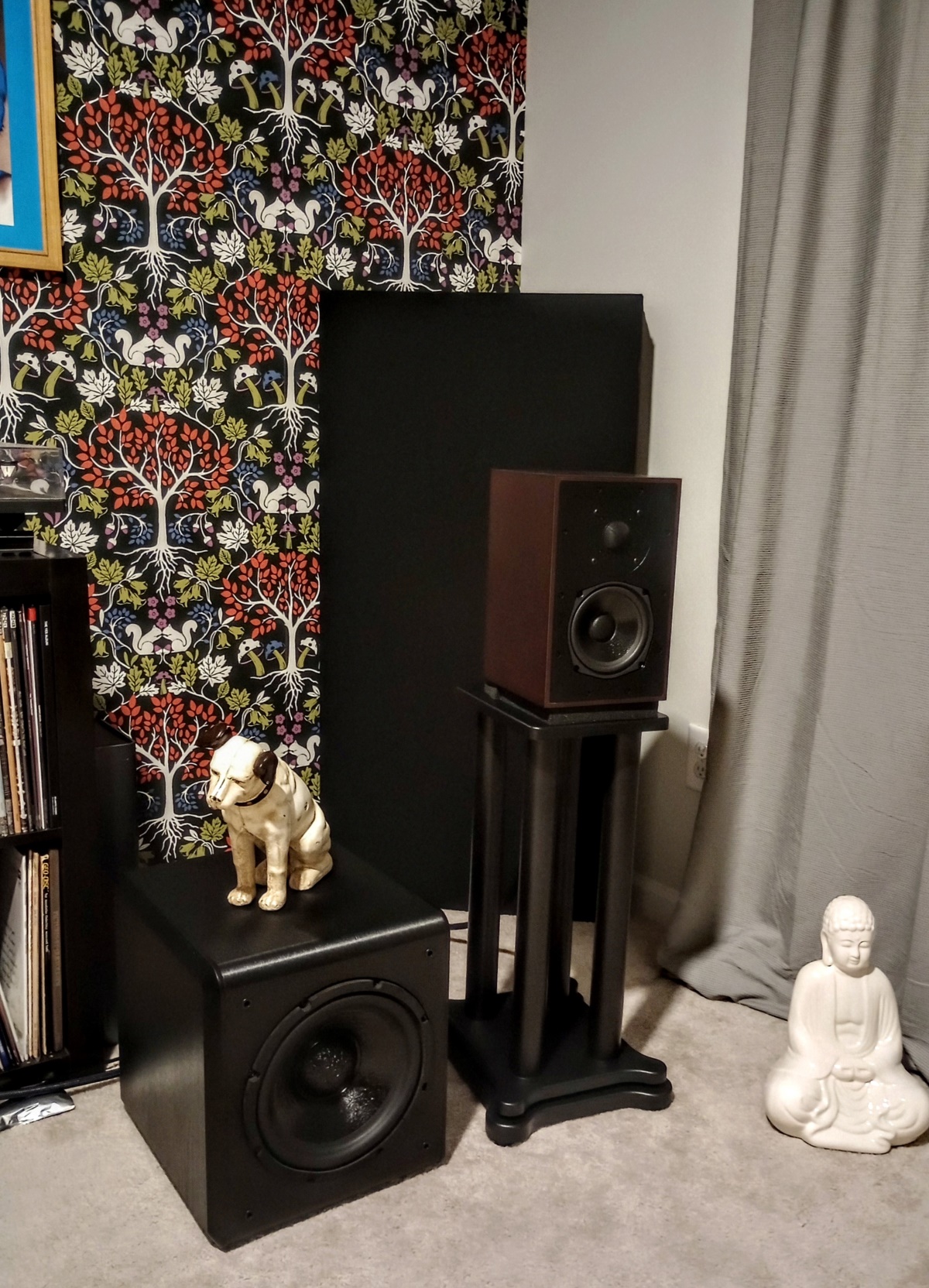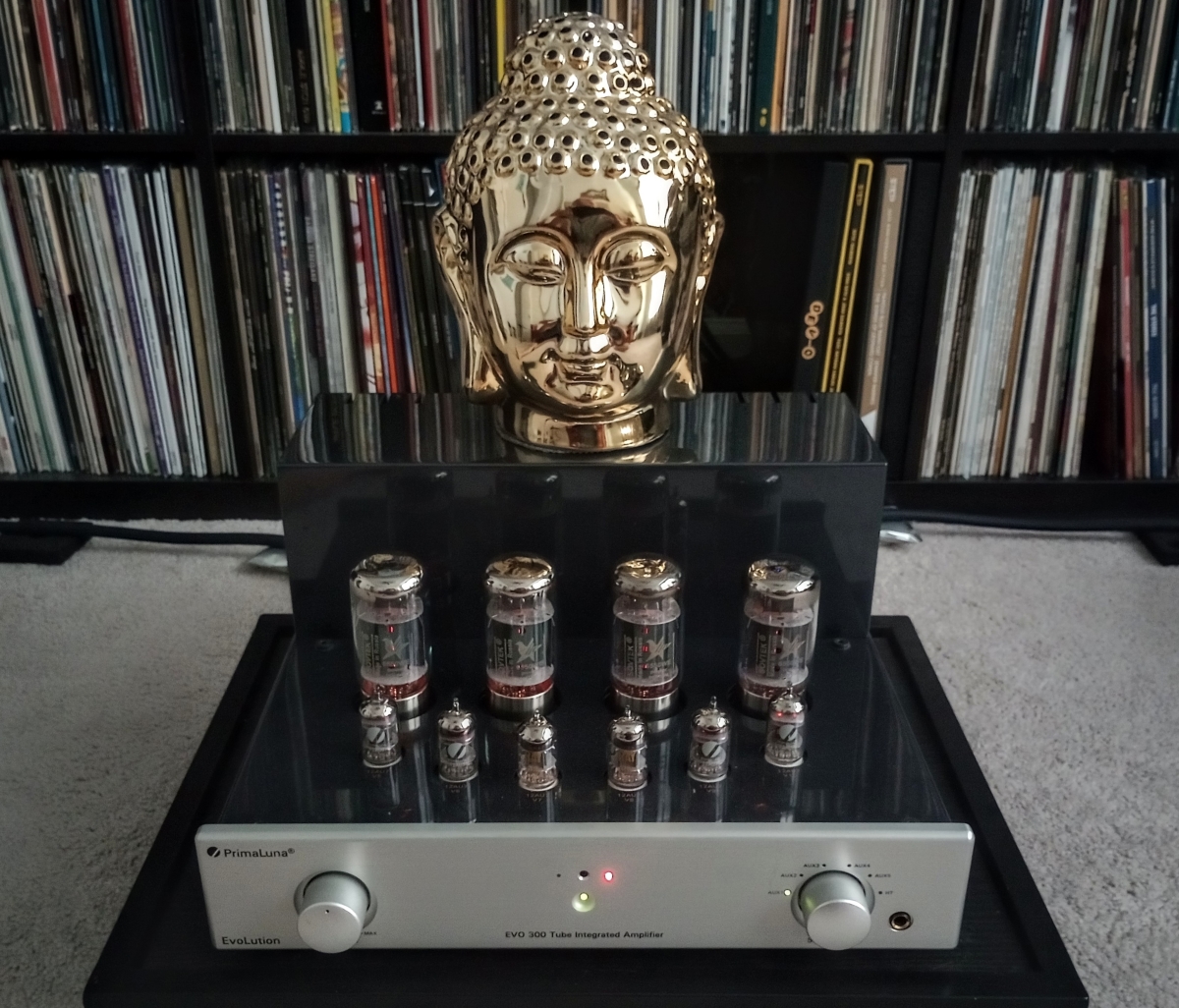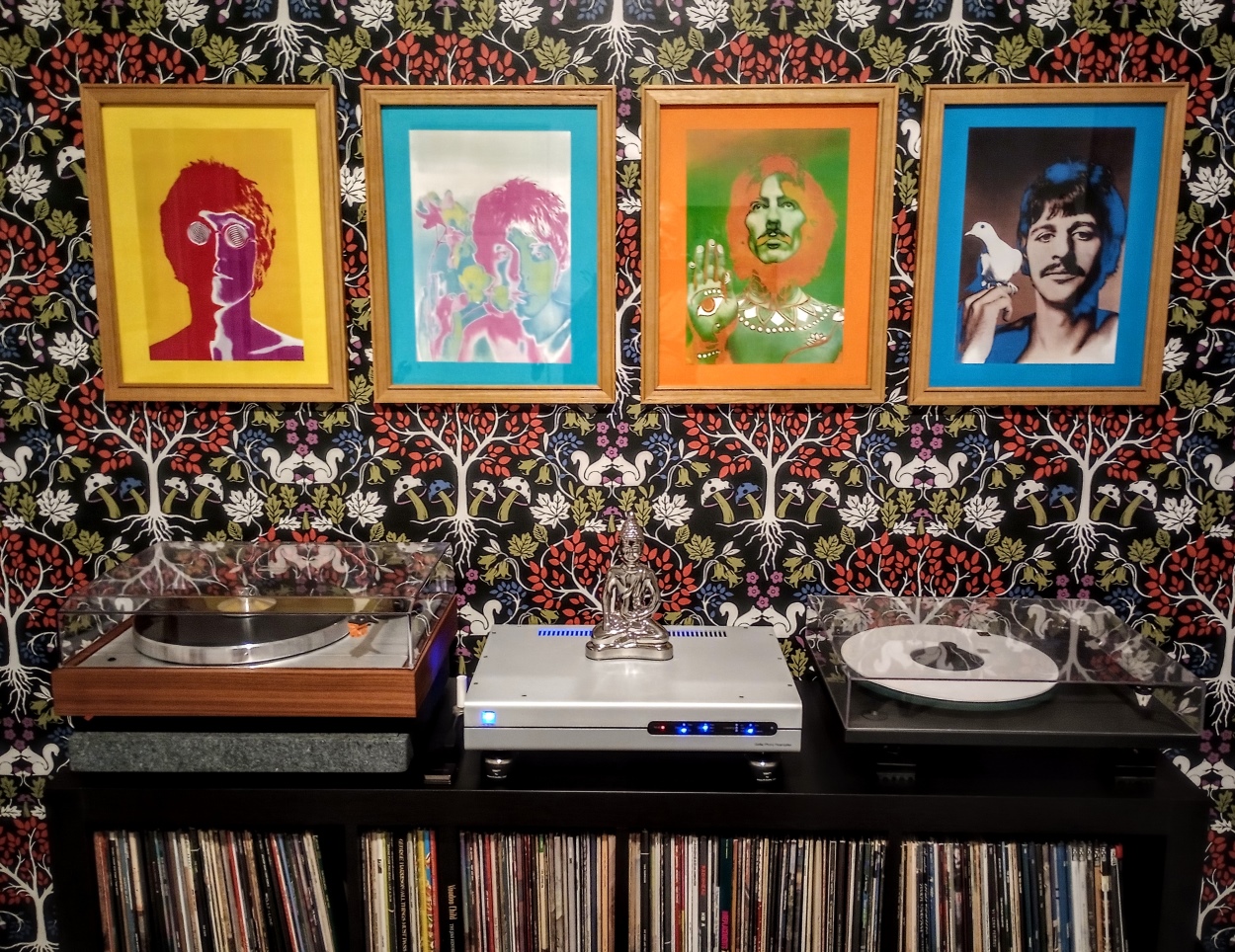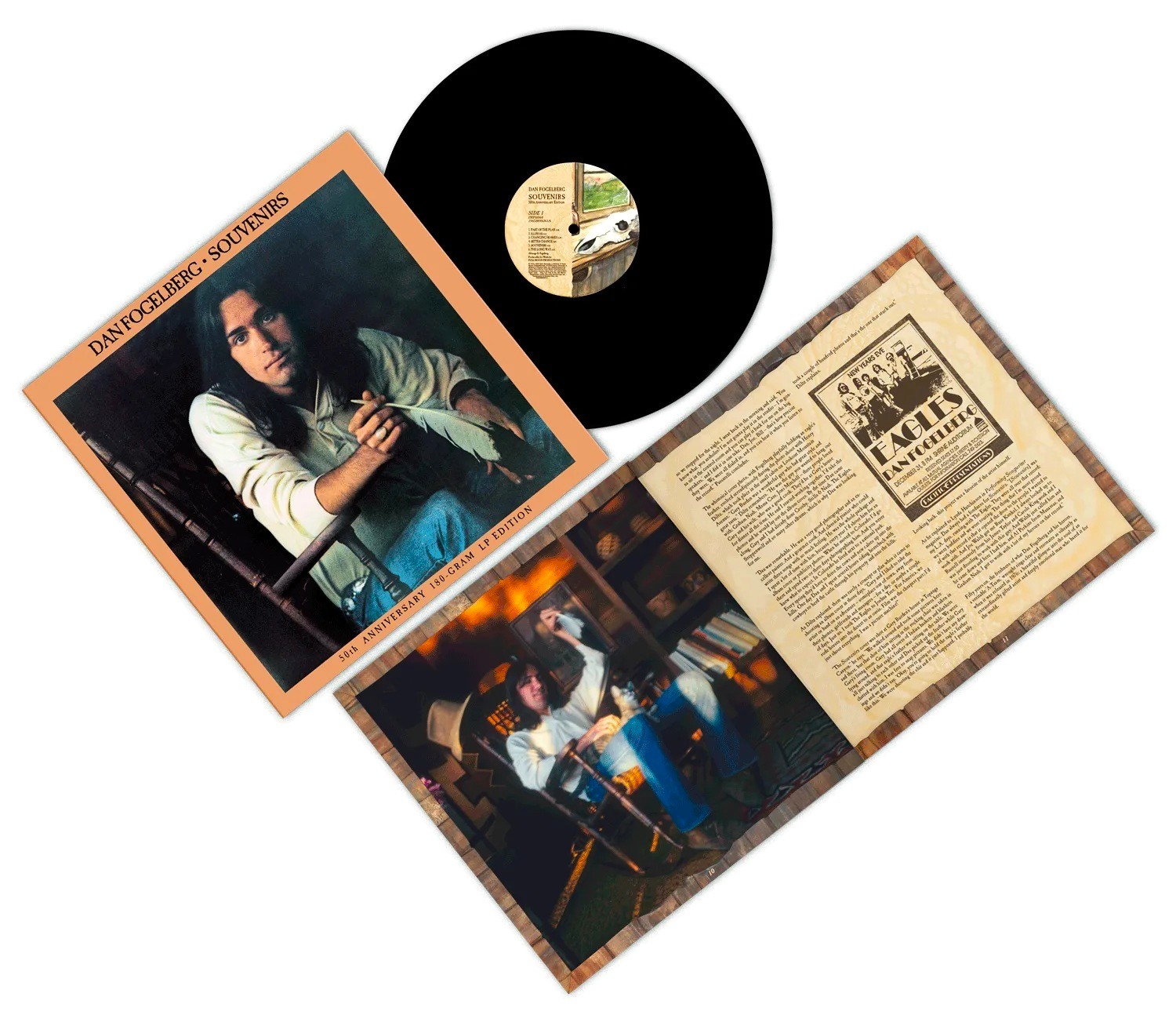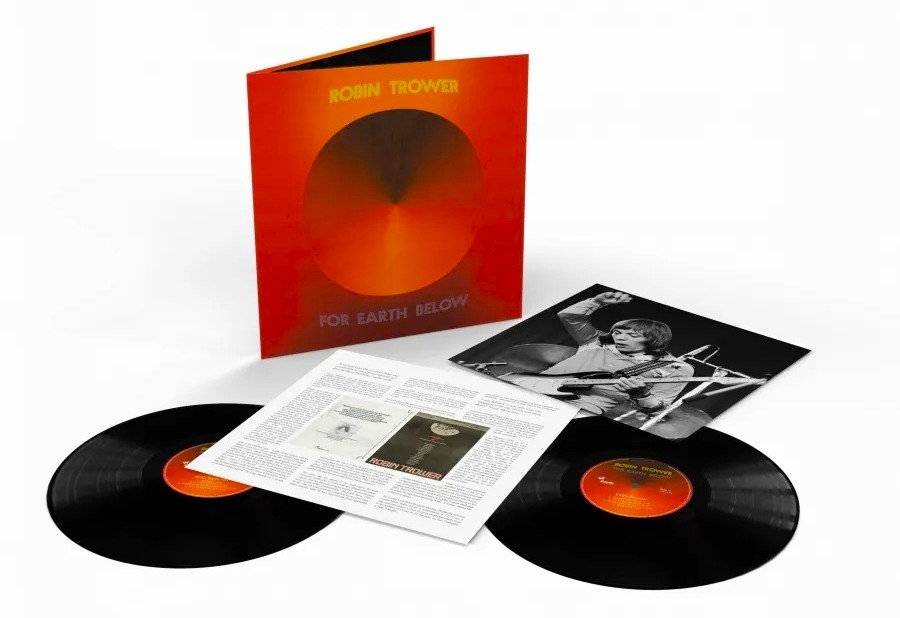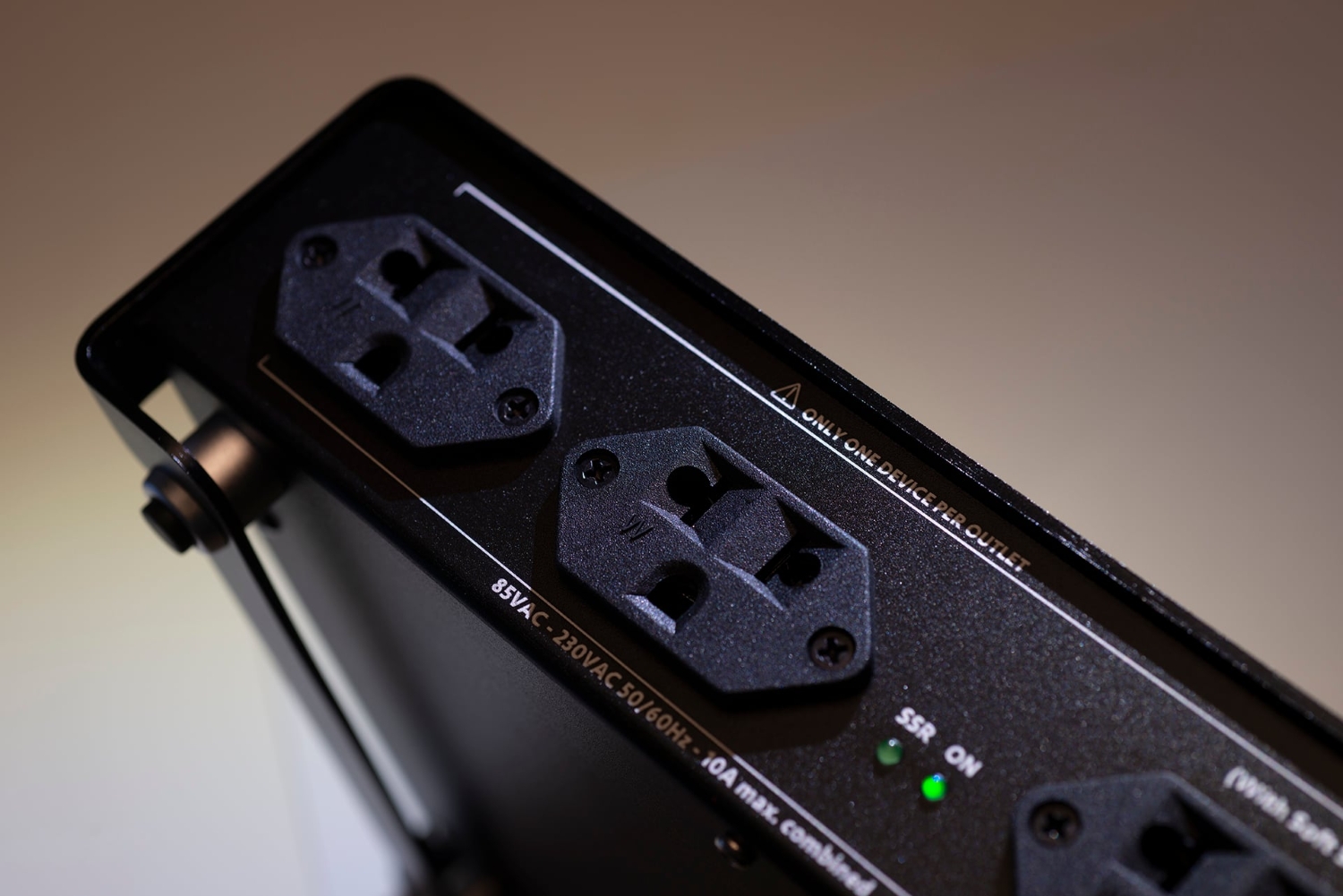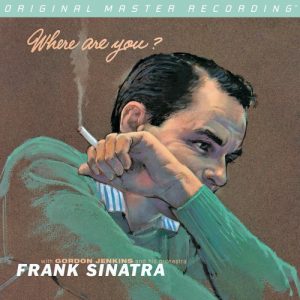Rhino Entertainment has just released a 50th Anniversary reissue of David Bowie's beloved Pinups, his 1973 album of cover tunes that paid homage to songs from the 1964 - 67 period that greatly influenced the teenaged David Jones and helped him get his bearings musically. Despite debuting to a very mixed reception from the music critics, Pinups became a perennial fan favorite, going gold in both the US and UK, and reached the number one spot on the UK Album Charts. The album features covers from a variety of artists, including Pretty Things, Them, The Yardbirds, The Who, Pink Floyd, and The Kinks among others; seeing many of those bands live at The Marquee Club in London inspired and informed Bowie's musical approach and his artistry. Pinups has enjoyed such enduring popularity that it's remained in print virtually since its release 50 years ago.
Pinups arrived in the form of a 180 gram, half-speed mastered LP that was cut from the 24-bit/192kHz restoration of Bowie's master tapes that took place in 2015. John Webber cut the half-speed master on a restored Neumann VMS80 lathe with no additional processing at AIR studios in London. The heavy album jacket features tip-on style construction, using crisp original artwork that came from RCA's vaults; the jacket also includes an OBI strip that perfectly matches and aligns with the album art, giving the reissue a very distinctive appearance. The LP was encased in a white paper inner sleeve that was lined with rice paper; that's always a nice touch for any LP, and helps ensure that the album is dust- and scratch-free during playback. A printed insert is included that replicates the content of the inner sleeve of the original release. The album cover art features a hyper-stylized photograph of Bowie and supermodel Twiggy by photographer Justin de Villanueve that was originally taken for the cover of Vogue; when the magazine went in a different direction, Bowie decided to use the image for Pinups, and it's become one of the most iconic album covers in his entire catalog.
David Bowie, Pinups. 180 gram Rhino LP, $24.98 MSRP
When Bowie convened at the Château d'Hérouville Studio (or as Elton John called it, the Honky Château) in northeastern France in July 1973, only six months had passed since the release of Aladdin Sane, and it had only been three months since the infamous final show of the legendary Ziggy Stardust tour. The team Bowie assembled for the Pinups sessions included Mick Ronson on guitars, Trevor Bolder on bass, Ansley Dunbar behind the drum kit, Mike Garson on keyboards, and Ken Fordham on baritone sax. With three of the players having been either members of the Spiders From Mars (Ronson, Bolder) or participants in the Ziggy Stardust tour (Garson), there was inevitable tension in the studio; remember, Bowie had basically announced to the entire world at the Hammersmith Odeon months earlier that Ziggy Stardust and the Spiders From Mars were done—forever. Mick Ronson and Trevor Bolder were both particularly stressed, with both expressing concern for their careers following the dissolution of the Spiders From Mars. That became even more of an issue when it came to light that certain members of the band were being more highly compensated than others. Pinups was also the final project for longtime Bowie producer Ken Scott, who was unhappy with Bowie's attitude and royalty arrangements.
Regardless of problems in the studio, the sessions proceeded at a fairly brisk pace, and recording Pinups only took a little over a month. The song selection included a pair of tunes from the Pretty Things, "Rosalyn" and "Don't Bring Me Down," Van Morrison and Them's "Here Comes the Night," a raucous version of Pink Floyd's "See Emily Play" (Syd's Pink Floyd, as Bowie wrote in his hand-sketched liner notes), and the Mojos' "Everything's Alright." Also included were two tracks from the Yardbirds, "Shapes of Things" and "I Wish You Would," the Easybeats' eternal classic "Friday on My Mind," and Pinups only single, the Merseys' classic "Sorrow." Covers of The Who's "I Can't Explain" and "Anyway, Anyhow, Anywhere" also made the grade, and the album closed with The Kinks' "Where Have All the Good Times Gone," which is the only song that Bowie included the lyrics to on the inner sleeve. While a number of other songs were attempted during rehearsals and in the studio, none of them were deemed appropriate for the album.
One of the complaints critics voiced about Pinups at the time of its release is that Bowie chose to stick to the original arrangements for the songs, and didn't really inject much of his own character into them. That said, many of the songs are imbued with an aggressive glam rock sensibility that lifts them above the ordinary and separates them from the original versions. Despite the commercial and critical successes of Ziggy Stardust and the Spiders From Mars and Aladdin Sane (which continued the Ziggy Stardust ethos), Bowie was ready to move on, and he perhaps saw recording Pinups as a kind of buffer between the retirement of the Ziggy Stardust persona and his next venture, 1974's Diamond Dogs.
Pinups Has Never Sounded So Very Good As on Rhino's New LP Reissue!
Click on my name in the header above, and you can see the selection of equipment I used to evaluate Pinups. For this listening session, I used my all-analog system that includes the PrimaLuna EVO 300 tube integrated amplifier, playing through the KLH Model Five loudspeakers. The turntable was my ProJect Classic EVO that's fitted with an Ortofon Quintet Bronze moving coil cartridge. Listening through tubes and classic acoustic-suspension loudspeakers gave my listening sessions an appropriately vintage but also very modern quality of sound. The PrimaLuna tube amp offers triode and ultralinear playback on the fly with the press of a button; I felt the extra punch of ultralinear portrayed this music perfectly.
As is typical with recent vinyl reissues, I was unable to determine who pressed the 180 gram LP, but the album package has "Made in Germany" emblazoned across it. So I think I can safely assume the album was also pressed there. The LP was perfectly flat, with beautifully glossy and pristine surfaces that were exceptionally quiet, and displayed little or no groove noise. The listening experience via my all-analog tube system was exceptional, and the sound quality of the LP was superb, with a level of quiet during playback I would only have expected from a much more costly high-end vinyl formulation. And I love how the tracks all segue into each other, giving the album a very propulsive feel during playback.
Conclusion
At the time of its release, the critics complained loudly that Bowie's covers on Pinups were inferior to the originals, but that's not really the point, is it? Bowie's interpretations of these classics are heavily imbued with the musical je ne sais quoi that made Bowie the icon he remains to this day. I previously never owned a copy of Pinups, but in addition to the heavily-played single "Sorrow," a number of album tracks got extensive airplay on local FM radio; I was particularly fond of Bowie's take on "Shapes Of Things." I found hearing this album again for the first time in decades both enlightening and seriously entertaining, and it's been in regular rotation since showing up a couple of weeks ago.
Pinups came at a time in the seventies when a number of artists were embracing the concept of cover albums—like Brian Ferry and John Lennon, for example. Brian Ferry is reported to have been so incensed that Bowie was also releasing a covers album (his album These Foolish Things and Bowie's Pinups both entered the UK Charts on the same day in 1973) that he begged his record label to pursue legal action against him! Bowie reached out to Ferry, and after Ferry heard Pinups, he realized that the two albums weren't that much alike after all, and dropped his complaint. In terms of the relevancy of cover albums, history has definitely gone to Bowie's side on this one!
Pinups might be a curiosity in Bowie's catalog, but most fans will still find it essential. I can't give enough praise to the new half-speed mastered LP, which makes for a stunningly good listen. Very highly recommended!
Rhino Entertainment
All images provided by Rhino Entertainment and Shore Fire Media.




